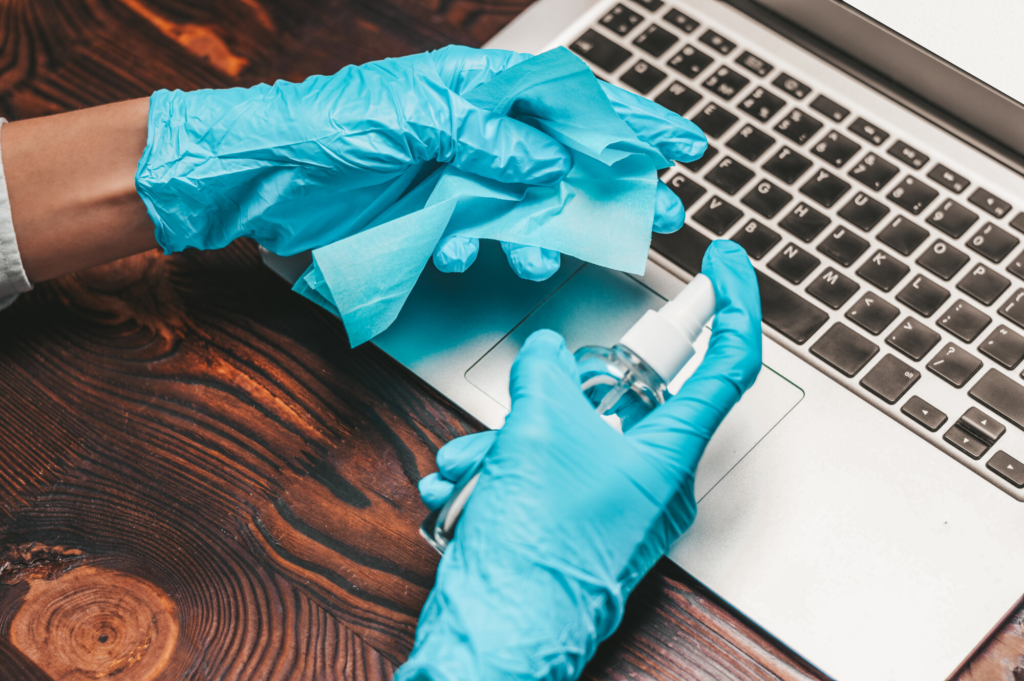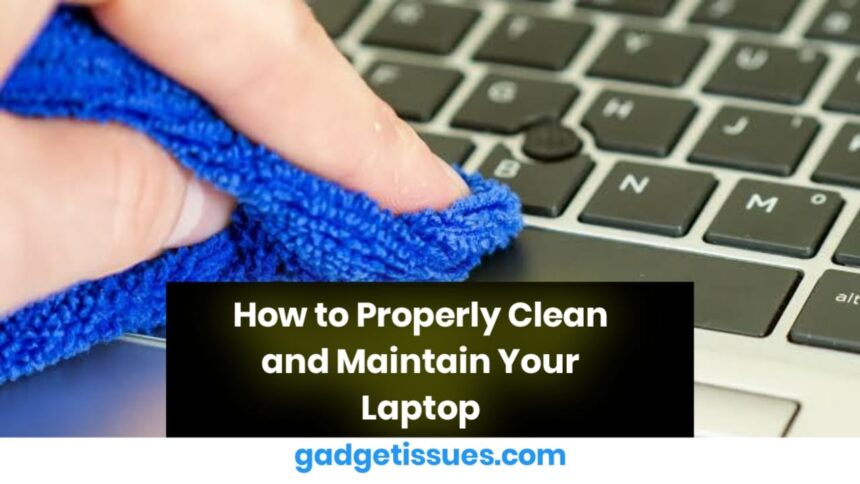In today’s digital landscape, laptops serve as essential tools for students, professionals, and entrepreneurs alike. Ensuring the longevity and optimal performance of your device requires regular maintenance and proper handling. Implementing best practices can prevent damage, enhance efficiency, and extend your laptop’s lifespan. Below are key guidelines for effective laptop care.
1. Avoid Exposure to Liquids and Food
Liquids and food crumbs pose significant risks to your laptop’s internal components. Spills can cause short circuits, corrosion, and data loss. Always keep your laptop at a safe distance from consumables to prevent accidental damage.
2. Maintain a Clean, Dust-Free Environment
Dust accumulation can obstruct airflow, leading to overheating and performance issues. Regularly clean your laptop’s exterior using a microfiber cloth, and use compressed air to remove dust from vents and the keyboard.
3. Ensure Clean, Dry Hands When Using Your Laptop
Handling your laptop with dirty or wet hands can Laptop Battery Maintenance Guide introduce debris and moisture, which may result in electrical failures and component degradation. Always wash and dry your hands before use.
4. Handle with Care

When transporting your laptop, avoid holding it by the screen. Instead, lift it by the base to prevent undue pressure on the hinges and display.
5. Use Peripheral Devices Cautiously
When inserting USB drives, headphones, or other accessories, ensure proper alignment with the ports. Applying excessive force or inserting devices incorrectly can cause irreversible damage to the ports and connectors.
6. Avoid Placing Heavy Objects on Your Laptop
Even light objects can exert pressure on the screen, leading to cracks, dead pixels, or keyboard imprints. Store your laptop safely when not in use.
7. Shut Down Your Laptop Periodically
Keeping your laptop powered on continuously can slow performance over time. Shutting it down regularly allows the system to reset and function more efficiently. How to Clean Your Laptop Properly
8. Invest in a Protective Laptop Case
A durable laptop case provides protection against minor falls, scratches, and impacts. Investing in a high-quality case ensures added security during transport and storage.
9. Optimize Battery Health
Proper battery maintenance is critical for your laptop’s longevity. Keep the laptop plugged in while in use to minimize unnecessary charge cycles, but unplug it when not in use to prevent battery swelling. Avoid overcharging and deep discharges to maintain battery efficiency.
10. Proper Laptop Cleaning Techniques
- Wipe the Exterior: Use a lint-free cloth with a mild solution of dish soap and water. Avoid harsh chemicals that may damage the surface.
- Clean the Keyboard and Touchpad: Use compressed air to remove dust and a cotton swab with isopropyl alcohol for detailing. Prevent liquid from entering any ports.
- Maintain the Screen: Use a microfiber cloth or an LCD-safe cleaning solution. Avoid alcohol or ammonia-based cleaners, as they may degrade the display.
Conclusion
By implementing these best practices, you can significantly extend your laptop’s lifespan and ensure optimal performance. Additionally, safeguarding your device from malware and software vulnerabilities is equally important. Regular maintenance and mindful usage will enable you to enjoy a seamless and efficient computing experience for years to come.
Also Read : How to Install a Mac SSD into an External Enclosure: A Step-by-Step Guide






